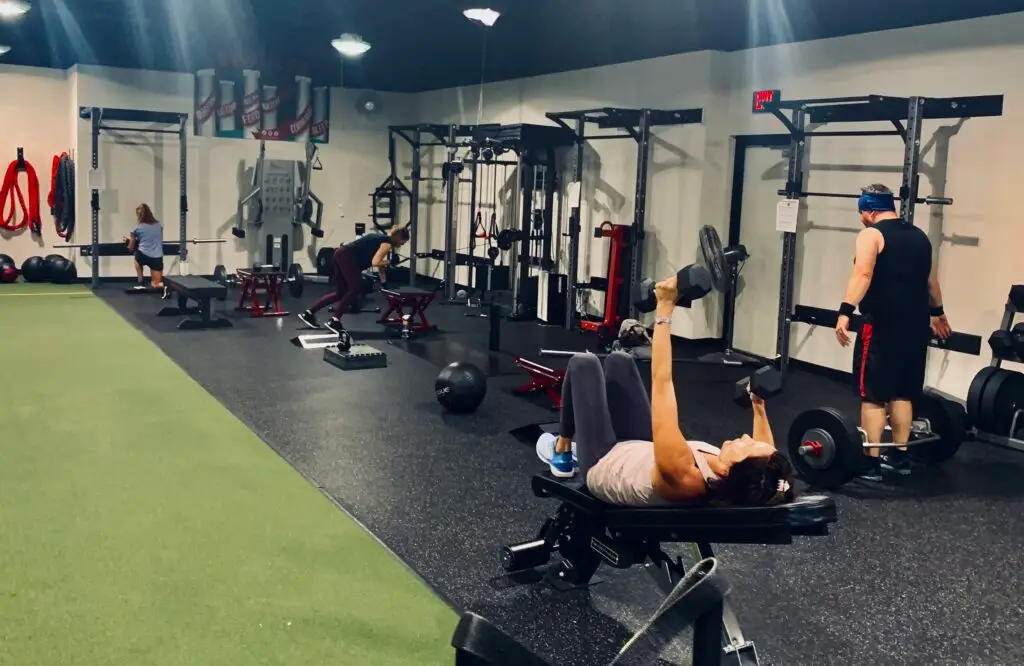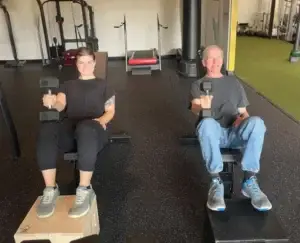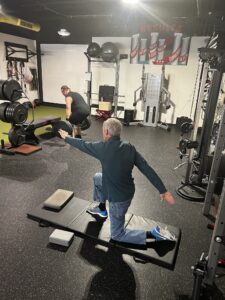No matter what you’re addressing, trying to improve, or hoping to overcome, decisions have to be made. And no matter what you do, something has to give—whether it’s time, effort, money, or sometimes a combination of all three.
For example, if you’re trying to improve your health, you might decide to hire a personal trainer. That’s a commitment of time, effort, and money. But the problem is, we’re never 100% certain if what we’re choosing to do—where we’re putting our time, our effort, and our money—is actually going to work.
But the uncertainty doesn’t stop there. Even if something does work, we can’t always know why it worked.
Health is multifactorial—influenced by so many overlapping variables that it’s impossible to isolate just one. This is especially true when it comes to things like pain or chronic symptoms. If someone gives you an exercise and you get out of pain, we can’t say with 100% certainty that it’s because your posture changed, or your bones realigned, or your muscles rebalanced. The most up-to-date research on pain shows that the correlation between pain and posture is way lower than we once thought.
So what else could explain why you feel better?
- Maybe the movement increased blood flow, which helped.
- Maybe just doing something made you feel more confident and hopeful, which changed your pain experience.
- Or maybe… you were going to get better anyway, even if you had done nothing at all.
This kind of uncertainty isn’t exclusive to exercise!
In medicine, widely accepted procedures have been called into question when subjected to rigorous testing. Veribroplasty was an extremely popular procedure where medical cement is injected into fractured vertebrae to relieve pain.
For years, people were certain that the reason they got pain relief was because of the procedure.
However, when researchers ran randomized controlled trials, they found that patients who underwent vertebroplasty experienced no greater pain relief than those who received a sham procedure. Both groups reported similar improvements, suggesting that the perceived benefits were largely driven by expectation rather than the procedure itself. This underscores the powerful role that belief and perception play in physical outcomes.
Of course, there are some things where cause and effect are clearer. If you strength train consistently and your deadlift goes up, you can be pretty certain that the strength training made you stronger. But with pain, chronic symptoms, autoimmune issues, and overall well-being, it’s much messier and uncertain.
And that’s what makes this whole thing so frustrating.
- Is it going to work? I don’t know.
- If it does work, can I be certain why? Nope.
So if you’re looking for certainty in health and fitness, you’re not going to find it. But that doesn’t mean you shouldn’t take action. It just means you need to embrace the uncertainty and move forward anyway.
Personal Example #1: The Nightmares
In February, I had a really bad nightmare. Not just any nightmare, but the kind I used to have in 2018 and 2019 when I was clinically depressed, anxious, and suicidal. These nightmares were intense. They felt real, and they stayed with me during the day, making it hard to focus on anything else.
At first, I brushed it off. But then it happened again. And again. Every night for two weeks straight.
I knew I had to make a change.
I decided to overhaul my night routine. With zero certainty if it was going to work.
At 9 p.m., an alarm goes off on my phone, and I put it downstairs. No more scrolling or falling asleep to politics 😂. I cleaned up my meditation room and committed to a new nighttime ritual:
- At 9 p.m., I go upstairs.
- I do a mindful movement routine while listening to meditative music.
- I move my body, pay attention to how it feels, and focus on my breath.
- I diffuse lavender essential oil.
- I fill out my gratitude journal.
- I write in my regular journal.
- I go to bed.
After a few days, my nightmares disappeared.
But here’s the thing—I have to be okay with the uncertainty that maybe my new routine had nothing to do with it. Maybe the nightmares were going to stop on their own. Maybe it was the movement meditation and not the gratitude journal? Maybe it was the gratitude practice and it had nothing to do with the movement meditation? Maybe it was putting my phone away?
I’ll never truly know. And that’s okay.
Personal Example #2: The Rosacea Flare-Up
At the end of January, I started noticing my face and hands getting red. By the last week of January, my entire face and arms had broken out into what looked like a mix of rosacea or psoriasis.
I asked myself the same thing I ask clients when something unpleasant happens: Has there been a change in routine?
The answer was yes.
I had just gone to Vegas, where I drank way more than usual—after months of not drinking at all. This was also right after the holidays, where my eating habits were already a little off. Then, when I got home, I was gifted some amazing sourdough bread. I don’t follow a strict gluten-free diet, but I generally don’t eat a lot of gluten. That changed fast. I had sandwiches every day and plowed through multiple loaves of bread in just a few weeks.
But that didn’t stop my brain spiraling and wanting THE answer:
- Is it my laundry detergent? My washer broke, so someone else was doing my laundry. Were they lying about using my detergent?
- Is there something in the air? Mold? Allergies? Do I need a better humidifier?
- Is it walking in the cold? Should I stop all my walks?!
- Do I need to see a dermatologist? Should I spend hundreds of dollars on a consultation and expensive creams?
- Or… do I just need to go back to eating how I normally do and wait it out?
I decided on the last option. I didn’t eliminate gluten, but I stopped seeking it out and went back to my usual way of eating—rice and potatoes as my primary carbs, with gluten only when I ate out a couple of times a week.
And now? My skin is basically back to normal.
But even that comes with uncertainty. Was it actually my diet? Or was it just the alcohol, and my skin would have healed anyway? Could I still be eating a sandwich every day with no problem?
I’ll never really know. Unless I want to take the time and experiment, but Im okay with not actually knowing.
Why This Matters for You
It’s normal to feel hesitant about trying something new—because you don’t actually know if it will work.
But instead of resisting that uncertainty, we’re better off embracing it.
Embrace the fact that some things won’t work.
Embrace the trial-and-error process.
Embrace that real, lasting change is rarely immediate.
Because the changes that actually matter—the ones that truly improve chronic pain, mental health, and long-term well-being—are the ones that take time. The ones where you look back weeks or months later and think, Wow, things are very different now.
So if you’re on a journey to improve your health, just know: embracing uncertainty isn’t just one small part of the process—it is part of the whole process.
📅 Ready to Take Action?
If you’re looking for guidance in your journey, we’re here to help.
📅 Book a Free Consultation at Enhancing Life Personal Training and start moving forward—without needing all the answers first.
Text “FREE CONSULT” to 859-251-2707



